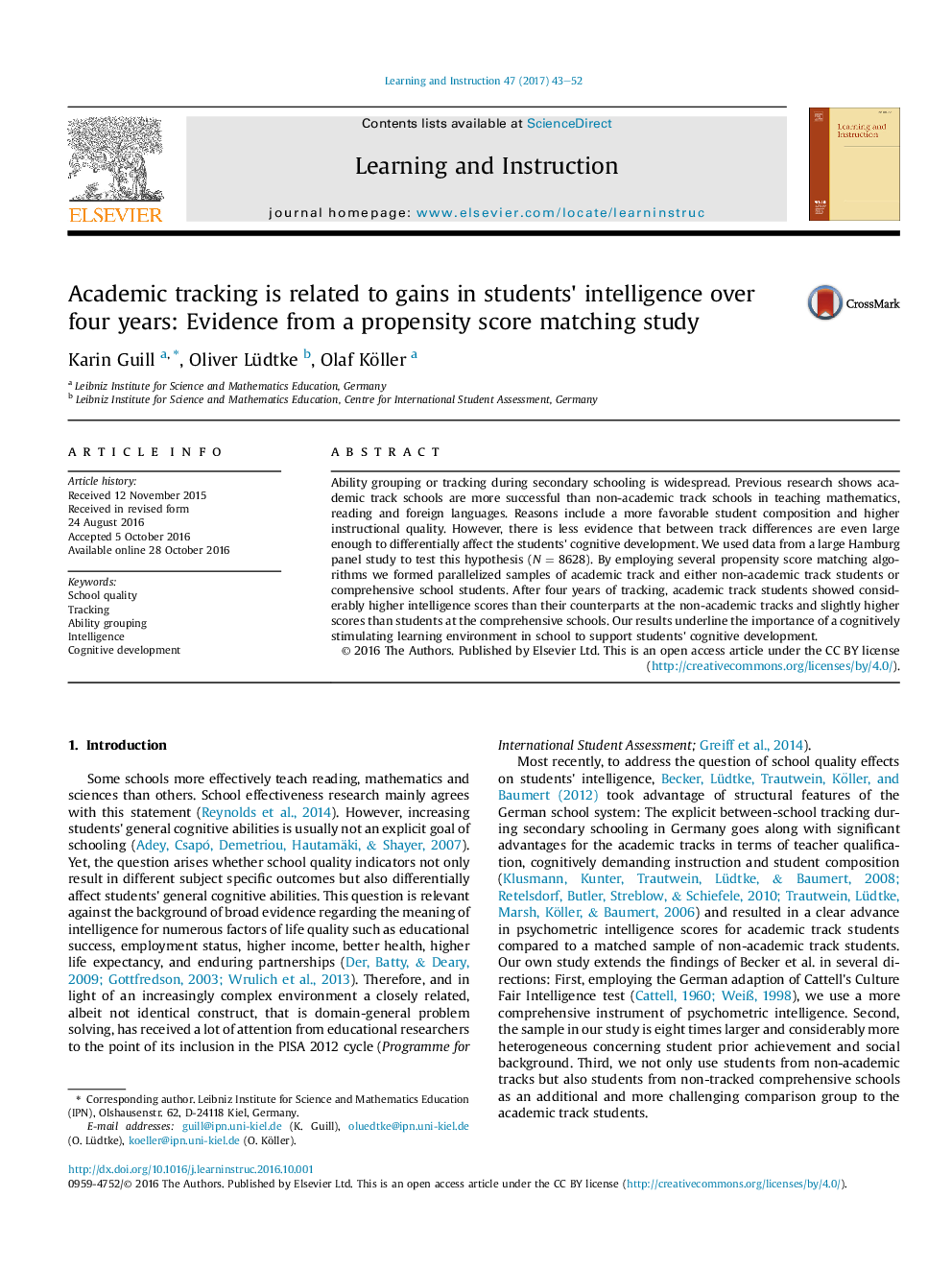| Article ID | Journal | Published Year | Pages | File Type |
|---|---|---|---|---|
| 4940306 | Learning and Instruction | 2017 | 10 Pages |
â¢Germany has academic track schools (AT), non-AT and comprehensive schools (CS).â¢These tracks differ in their instructional quality and student composition.â¢We form parallelized samples of AT and either non-AT students or CS students.â¢AT students show considerably higher intelligence score gains than non-AT students.â¢AT students show slightly higher intelligence score gains than CS students.
Ability grouping or tracking during secondary schooling is widespread. Previous research shows academic track schools are more successful than non-academic track schools in teaching mathematics, reading and foreign languages. Reasons include a more favorable student composition and higher instructional quality. However, there is less evidence that between track differences are even large enough to differentially affect the students' cognitive development. We used data from a large Hamburg panel study to test this hypothesis (NÂ =Â 8628). By employing several propensity score matching algorithms we formed parallelized samples of academic track and either non-academic track students or comprehensive school students. After four years of tracking, academic track students showed considerably higher intelligence scores than their counterparts at the non-academic tracks and slightly higher scores than students at the comprehensive schools. Our results underline the importance of a cognitively stimulating learning environment in school to support students' cognitive development.
